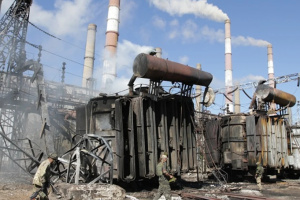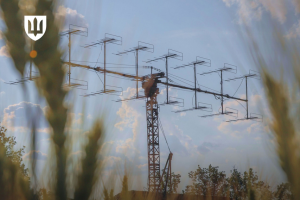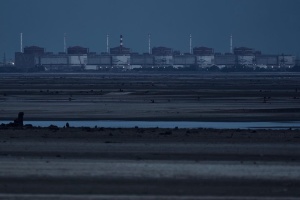
EU seeks to sanction as many Russian "shadow fleet” tankers as possible - special envoy
This was stated by EU's Special Representative for Sanctions, David O'Sullivan, who spoke at a roundtable at the Brussels-based Center for European Policy.
This is how he answered the question of an Ukrinform correspondent about the reason for the tripling of the number of vessels (which has significantly exceeded 1,000) involved in the illegal trade in Russian oil, and about the ways the EU exposes and sanctions entities Russia creates en masse to circumvent sanctions.
He said the shadow fleet is the EU’s main concern as it is dealing with a large fleet of vessels that are used to circumvent the oil price cap. These vessels are usually in poor condition and the EU has no data on whether they are insured but they still navigate the open sea carrying oil, he noted, adding that the first thing the EU does is work with maritime organizations so that countries are more aware of such risks.
He noted that imposing targeted sanctions on individual vessels involved in illegal oil handling is a relatively new matter for the EU, launched only a few months ago.
The EU anticipated this possibility of such actions in the 14th package of sanctions, collecting the relevant information, the special representative said, adding that the task is now to impose sanctions on the maximum possible number of such vessels as every time such tankers are sanctioned, the functioning of the entire system is complicated.
According to O’Sullivan, it is only about the vessels that belong to the "shadow fleet" and violate the established price cap on Russian oil. If the cap is observed, tankers can be legally used, including those owned by European companies and governments.
What is concerning about the “shadow fleet” dimension is that it is out of control, posing a huge environmental risk and having no respect for price caps, the official noted, adding that he has no doubt European companies, including Greek and Cypriot ones, are doing everything possible to adhere to the price cap rules.
Regarding the numerous small front companies involved in Russia's shadow oil schemes, the EU is constantly working on identifying and designating them in the sanctions lists. According to the diplomat, about 300 such companies were established within the first month into Russia’s full-scale invasion of Ukraine.
The EU has no illusions as to the scale of Russia’s front company schemes as once sanctions are imposed on any of those, they simply change their name. The Americans introduced a system of sanctions on specific addresses as they found out that dozens of entities could be registered at the same address. The EU legal teams are still considering whether the same can be done, O’Sullivan said.
He emphasized that this work poses a constant challenge. The EU works hard with third countries, most of which do not enjoy their territory or jurisdiction being exploited for illegal trade as it is a matter of reputation, which is important for countries that very often depend on direct investments from the G7 states.
As reported, since the full-scale military invasion of Ukraine, the EU has already applied 14 rounds of personal and sectoral economic sanctions against Russia in order to deprive the aggressor of access to high technology and the ability to fuel its war of aggression.
The European Union, together with its G7 partners, introduced a price cap for Russian oil transported by sea at $60 per barrel. Currently, Russia is trying to circumvent such a restriction by using a “shadow fleet” of tankers.




